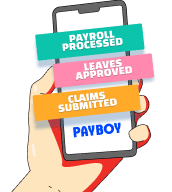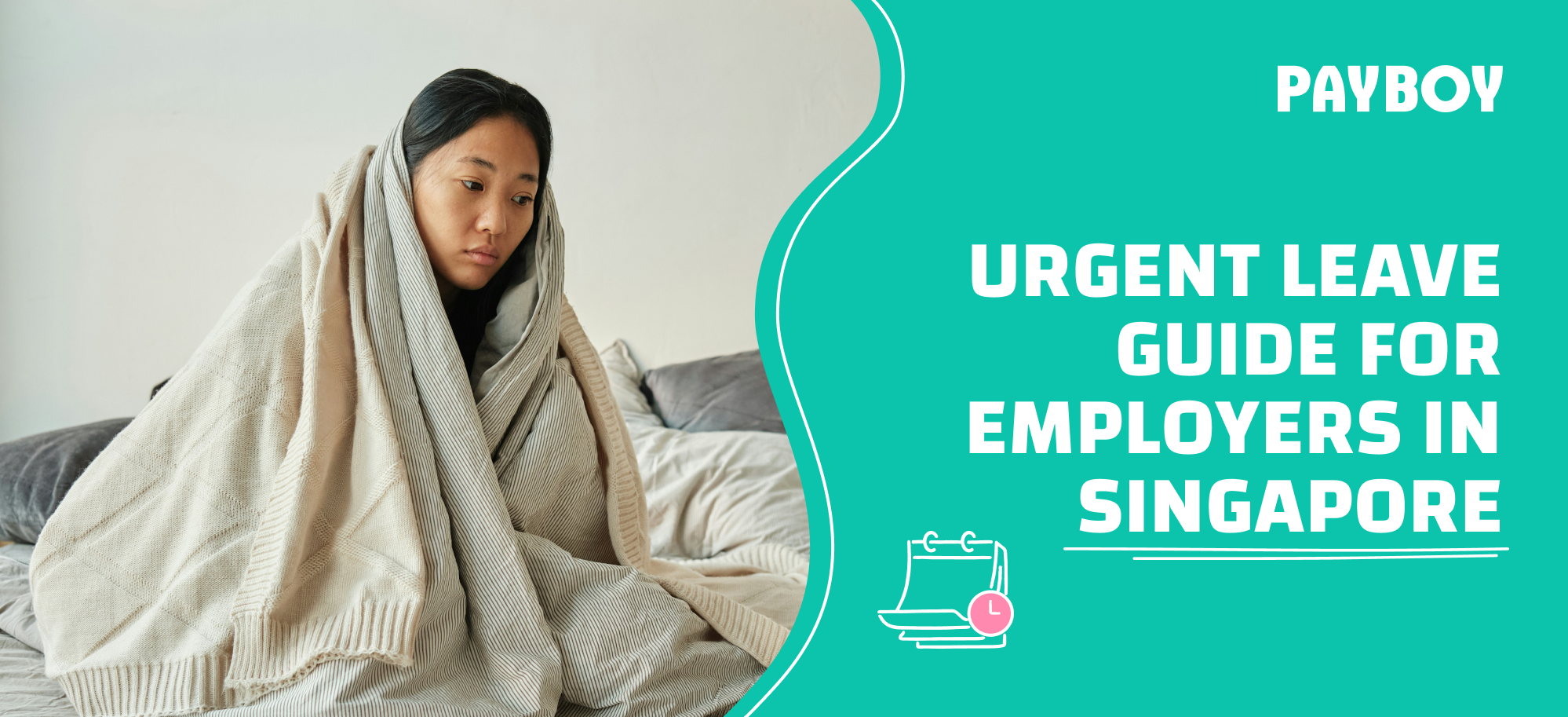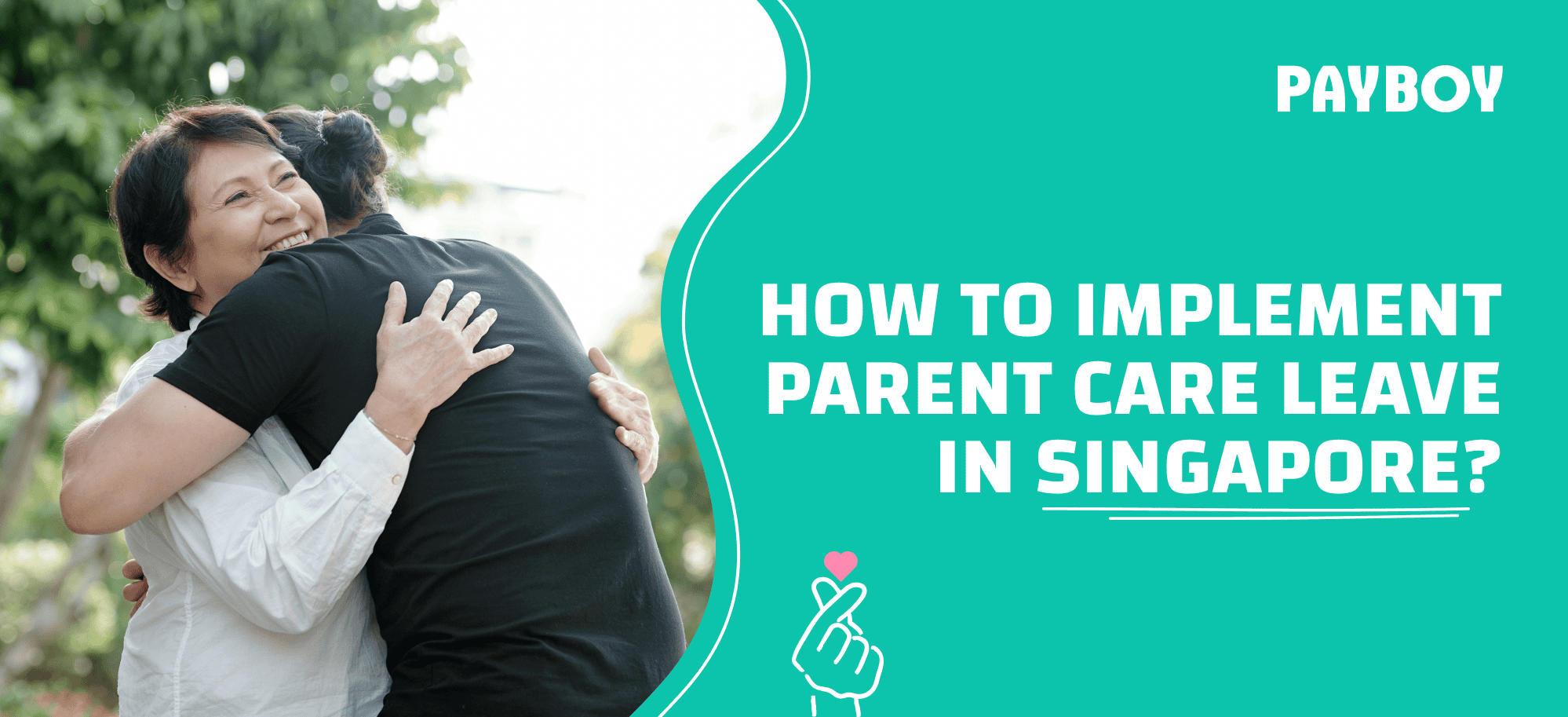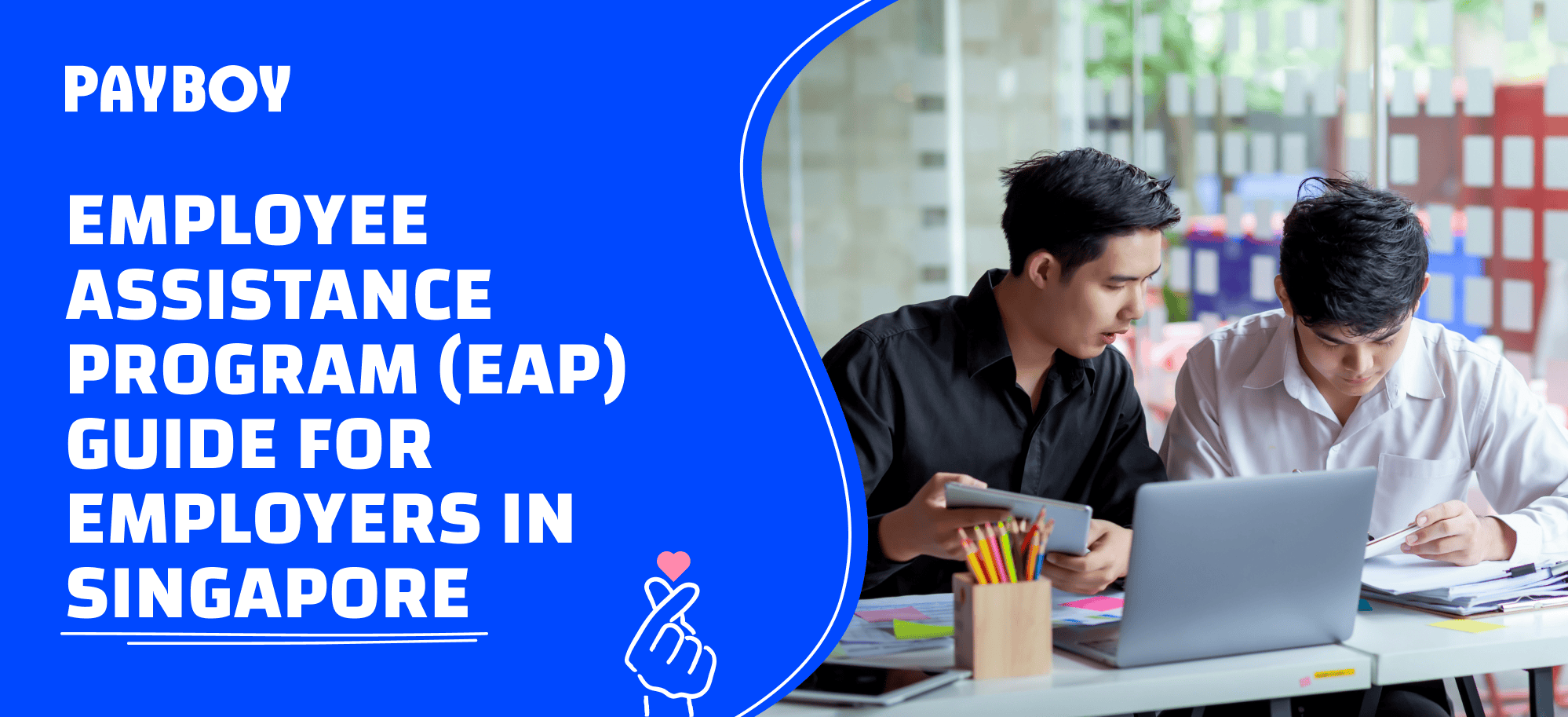Managing leave policies effectively is vital for fostering a positive and supportive work environment. Among various leave types, urgent leave stands out due to its unexpected and immediate nature. This guide aims to provide employers in Singapore with a detailed understanding of urgent leave policies and their implications.
What is urgent leave?
Urgent leave refers to unplanned absences taken by employees due to unforeseen emergencies or critical personal matters. These emergencies could range from sudden health issues and family emergencies to unexpected home repairs or accidents.
Is urgent leave compulsory in Singapore?
While there is no mandatory requirement from the Minister of Manpower (MOM) for employers to offer urgent leave under Singapore's employment laws, many companies choose to include it in their leave policies to accommodate unexpected situations faced by employees.
What are some types of leaves that can be used for urgent leave requests?
Depending on the the nature of the urgent leave, employees can consider applying for these statutory leave entitlements:
Annual leave
Annual leave is an important part of ensuring that your employees are fulfilled and productive. Our go-to “Annual Leave guide for employers in Singapore” provides an overview of annual leave entitlements as well as some useful tips on managing annual leave. Keep reading on and find out everything you need to know about annual leave in Singapore!
Sick leave
Sick leave is a crucial aspect of employee welfare, ensuring that employees can prioritise their health while also safeguarding the productivity and well-being of the workplace. For a comprehensive understanding of leave entitlements, our "Sick and hospitalisation guide for employers in Singapore" offers valuable insights that can complement your urgent leave policy, ensuring you're well-equipped to support your team effectively.
Childcare leave
Childcare leave is one of the key benefits for employees in Singapore, offering working parents the means to excel in their professional journey while nurturing their families. Employers have a pivotal role in comprehending the intricacies of childcare leave regulations, serving as a bridge between employees and the law. Our ”Childcare leave guide for employers in Singapore” answers common questions and aims to help you create a legally compliant and family-oriented workplace.
What should I include in the leave policy for urgent leave?
Urgent leave policies are crucial to ensuring that employees can manage unforeseen circumstances without compromising their professional responsibilities. Crafting a comprehensive urgent leave policy ensures clarity, fairness, and consistency across your organisation. Here are some essential components to consider when developing an urgent leave policy:
- Eligibility criteria: Clearly define which employees are eligible for urgent leave. This may encompass full-time, part-time, contract, temporary, or specific roles within the organisation.
- Conditions: Specify the circumstances under which urgent leave can be requested, such as medical emergencies, family emergencies, or unexpected personal issues.
- Duration and Entitlement:
- Leave duration: Determine the maximum number of days or hours an employee can take as urgent leave per instance.
- Accrual method: If urgent leave is granted on an accrual basis, detail how it accumulates, whether it's monthly, annually, or based on specific conditions.
- Approval process: Outline the approval process for requesting urgent leave. This may include notifying a manager, submitting an urgent leave request within the HR platform, or write a formal letter.
- Supporting documents: Clarify if any supporting documents, such as medical certificates or proof of emergency, are required when requesting urgent leave.
- Restrictions: Highlight any restrictions on when urgent leave can be taken, such as during peak business periods or company events.
- Policy communication: Ensure the urgent leave policy is clearly communicated to all employees during the onboarding process and is easily accessible through company intranets or HR platforms.
How can an employee request for urgent leave?
Yes, employees can submit urgent leave requests through the company's designated leave application process, like Payboy's Leave Management module or or a formal email to their immediate managers or the HR department for leave approval. A transparent and straightforward process encourages employees to communicate their needs effectively.
Can an employee take unpaid urgent leave?
When employees have exhausted their leave entitlements, they may request unpaid urgent leave. It's essential to have clear guidelines for unpaid leave to ensure fairness and consistency. For detailed insights, refer to Payboy's unpaid leave guide for employers in Singapore.
Are Singapore Permanent Residents (PR) or foreigners eligible for urgent leave?
Both Singapore Permanent Residents (PR) and foreign employees typically have access to urgent leave, subject to the company's policy and employment terms. It's crucial to ensure equitable treatment across all employee categories.
Do contract, temporary, or part-time workers get urgent leave?
Contract, temporary, and part-time workers play a crucial role in many organisations, contributing to various projects and tasks. Recognising their contributions, it's essential to address their rights and entitlements concerning urgent leave. Given the diverse nature of contractual roles, the specifics of entitlements may differ based on their employment contracts.
Tip: Worry-free to manage the unique work arrangement needs of part-timers and freelancers, our HR & Payroll software lets you do customisable features based on your leave policy.
Can an employee take urgent leave during probation?
During the probationary period, employees may be allowed to take urgent leave for unforeseen emergencies or critical personal matters. However, the conditions and terms of such leave during the probationary period might differ from those of permanent employees.
It's essential to clearly communicate the probationary period's leave policies to new hires during the onboarding process. Providing a written policy document and conducting orientation sessions can help set clear expectations and prevent misunderstandings.
Tip: For a comprehensive understanding of managing probationary periods and related policies, explore this ”Probation period guide for employers in Singapore”.
Can an employee take urgent leave during the notice period?
The notice period signifies the impending end of the employment relationship, which can make urgent leave requests during this time more complex. Given the transitional nature of the notice period, employers should approach urgent leave requests with empathy and understanding. While employees maintain their right to urgent leave, employers may need to evaluate the urgency and impact of the leave request on the remaining notice period's workflow.
While it's crucial to be empathetic to an employee's urgent needs, employers must also ensure minimal disruption to business operations, especially during the critical notice period. Clear communication, flexibility, and understanding are vital in managing urgent leave requests effectively during this sensitive period.
Tip: Gain insights into effectively managing notice periods and associated challenges by exploring this comprehensive ”Notice period guide for employers in Singapore”.
What other non-statutory leave benefits can I provide to support my employees?
While the MOM doesn't mandate these leave benefits, offering them can provide valuable support and flexibility to your employees in balancing their personal and professional lives.
Unpaid leave
Unpaid leave refers to a period during which an employee takes time off from work without receiving regular salary or wages. While the employee is not paid for the duration of the unpaid leave, they usually retain their employment status and benefits. Unpaid leave can be taken for various reasons, such as personal emergencies, extended vacations, or other non-medical reasons. It's essential for employers to have clear policies and guidelines regarding unpaid leave to ensure consistency, fairness, and compliance with employment regulations. For a detailed guide on managing unpaid leave, you can refer to our “Unpaid leave guide for employers in Singapore”.
Family care leave
Family care leave grants employees the opportunity to take a leave of absence to care for family members, extending beyond childcare or eldercare leave. This acknowledges that employees may have caregiving duties for a broader spectrum of family members, including older children, siblings, or grandchildren. By offering this leave option, employees have the flexibility to fulfil these responsibilities without any adverse effects on their employment status. Deep dive into our comprehensive “Family care leave guide for employers in Singapore” to learn the regulations, and we also added additional leave benefits that you might think about providing to your employees!
Simplify employee leave tracking with Payboy’s leave management system!
Small and medium-sized enterprises (SMEs) often find leave management to be a pain point, and we can understand why:
- SMEs don’t have as many HR resources as larger businesses. As a result, they often have to rely on manual leave processes, which can be both time-consuming and error-prone.
- SMEs often have a more limited pool of employees to choose from when someone goes on leave. This can lead to disruptions in workflow and decreased productivity.
If leave isn't managed properly, it can have a negative impact on productivity and morale. Therefore, good HR software is an essential tool for any business that wants to stay on top of its leave entitlements and ensure its employees are getting the rest they deserve. Here are some benefits of using our leave management module:
Manage leaves digitally
Our leave management module is designed to streamline the leave management process, making it easy for employees to apply for leave and check leave balances, as well as for employers to approve and manage leave requests.
Employees can also easily submit supporting documents or certificates via the mobile app, so that all the documents are stored in a central database. No more missing documents!
Sync seamlessly with Shift Scheduling and Payroll Processing modules
Shift scheduling and payroll calculation can be time-consuming and stressful while managing different leave types and requests. With Payboy HR software, when leaves are approved, the employee’s availability will be automatically updated in the Shift Scheduling module, and any encashed or unpaid leave will be calculated in the Payroll Processing module.
Customise the leave policy that best fits your business needs
We'll provide you with a MOM-compliant setup to start with, but we are also ready to assist you in customising your leave policy to fit your business requirements. Check out how to customise settings for each leave type with Payboy, including shared parental leave!
Our Payboy Support Centre also helps to address most of the FAQs regarding other statutory leave entitlements asked by our customers:
Streamline your HR processes with Payboy today!
As a PSG-approved HRMS, Payboy provides a robust system to help you manage your HR tasks so that you can focus on your business and people!
With our wide range of modules, you can customise a solution to meet the specific needs of your business:
Payroll Processing | Leave Management | Claims Management | Applicant Tracking
Time Attendance | Shift Scheduling | Appraisal System | Inventory Management
Project Costing | Training Management





















